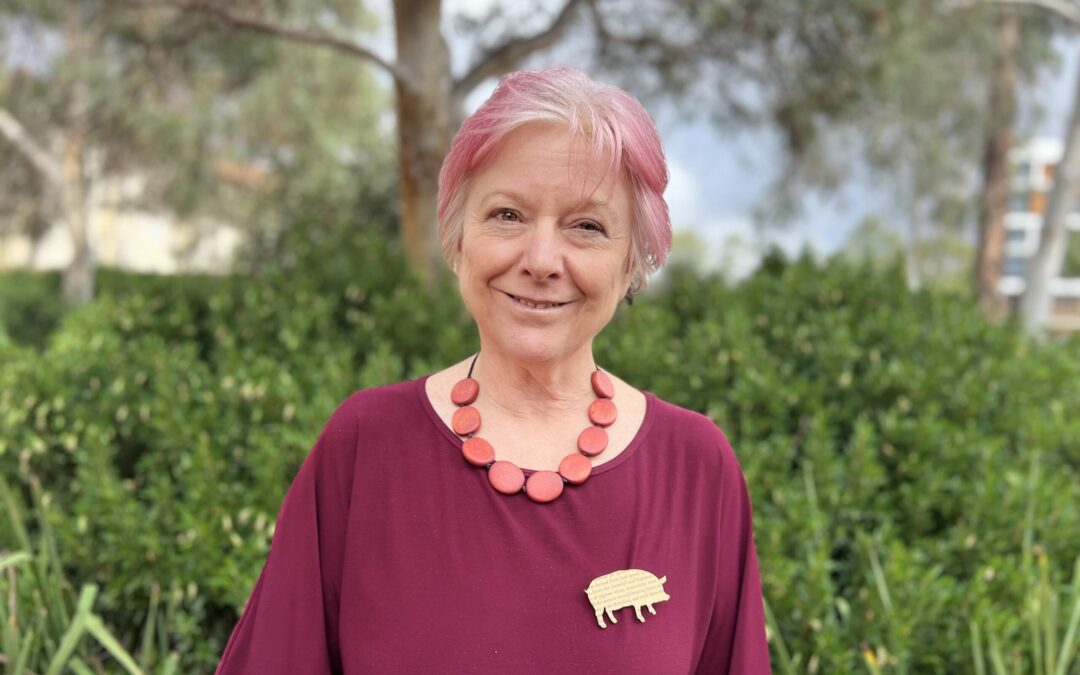Recently, I was fortunate to be recognised as the ACT Woman of the Year, as well as be included in the Forbes Asia ‘30 Under 30’ list. This came with a whole roller-coaster of emotions – shock, happiness, excitement, fear, panic and many, many questions. Why me? Who else was on the list? What if they find out that what I’ve done is not award-worthy?
The media appearances that followed, including radio interviews, were a truly terrifying prospect. Being put on the spot to talk about myself and my accomplishments was one of the most uncomfortable things I’ve done, and in particular, facing up to the dreaded question, “What does this award mean for you?”. I avoided Facebook and social media comments like the plague, and throughout the entire process I couldn’t shake the feeling that soon someone was going to realise that I did not deserve this recognition.
This is a fairly standard manifestation of the impostor syndrome … feeling like it’s only a matter of time until someone discovers you’re a fraud
This is a fairly standard manifestation of the impostor syndrome; feeling that you haven’t done enough to earn your achievements, and it’s only a matter of time until someone discovers you’re a fraud.
Although the topic has gained a lot of attention in recent years, impostor syndrome remains a mystery. It is disproportionately present in women, who are often culturally conditioned not to celebrate their successes and own their wins. Women apologise more often, underrate their work performances, attribute success to external factors and have been shown to rarely apply for jobs unless they meet 100% of the criteria. Men, by contrast, will apply when they meet 60% of the criteria.

Ashleigh Streeter-Jones, ACT Woman of the Year 2018 and Caitlin Figueiredo, ACT Young Woman of the Year 2018
We also know from decades of research that successful women are more likely to be perceived as unlikeable. Words such as bossy, bitchy or ambitious, continue to be employed to describe them. These negative perceptions are further amplified for persons of colour.
But by not discussing our successes, we’re doing ourselves a disservice. Ironically, studies have found that those with imposter syndrome are doing their jobs to a high standard, spurred on by perceptions around their lack of competence.
An open and frank discussion about our failures can help create a sense of a community, and most importantly, room for empathy
It’s time to change the narrative. I recently made the decision to spend more time discussing my failures, a topic often missing from the conversation. We need to be upfront about what it took to get us there. The times we cried in frustration, the meetings which didn’t go well, the phone calls or emails to people which went unreturned, the stress of missed deadlines, performance managing your team, collapsing with exhaustion, the anxiety that comes with trying to do it all, and the absolute fear of failure which lurks in the background of each new project.
People can identify with these experiences. No one is immune to them. They remind us that we’re human. An open and frank discussion about our failures can help create a sense of a community, a common understanding, and most importantly, room for empathy.

No one is immune to self-doubt. Jodie Foster thought winning an Academy Award was a fluke: “The same way when I walked on the campus at Yale, I thought everybody would find out, and then they’d take the Oscar back.”
I’ve made it my mission to change my language patterns, eliminating the word “lucky” from the vocabulary and instead changing it to fortunate. Even though I am extremely fortunate and work from a position of privilege, I also work hard and it’s important that the successes that we earn aren’t perceived as luck. Admittedly, this has been an uncomfortable process not just for myself, but for others whom I’ve challenged when they’ve described their successes or promotions as ‘lucky’.
Let’s celebrate not only our own achievements, but the achievements of our sisters everywhere
We need to recognise that we’ve earned our achievements and stop hiding in the shadows for fear of having that success undermined. Yes, luck will always influence the process to a degree, but behind every project is a lot of hard work. We need to back ourselves, and let our accomplishments speak for themselves. And most importantly, let’s celebrate not only our own achievements, but the achievements of our sisters everywhere.




